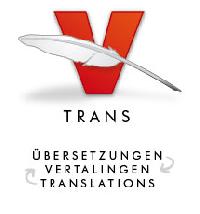| Pages sur ce sujet: [1 2] > | Poll: Do you usually read the whole source text before starting your translation? Auteur du fil: ProZ.com Staff
|
|---|
This forum topic is for the discussion of the poll question "Do you usually read the whole source text before starting your translation?".
View the poll results »
| | | | | I don't read it but | Oct 6, 2010 |
I certainly peruse entire document to make sure that there are no potential problems - illegible fragments, sections written in other languages, etc...
I normally do it before I accept a job.
S
| | | |
Reading the whole text before starting translation would definitely be helpful but is often too time consuming. In most cases it is more effective to plunge into work right away and then return and correct some sentences as work progresses.
[Edited at 2010-10-06 08:22 GMT]
| | | | Interlangue (X)
Angola
Local time: 03:37
anglais vers français
+ ...
Have no time. But I do have a quick look and check for tables, legibility, and so on.
| | |
|
|
|
neilmac
Espagne
Local time: 03:37
espagnol vers anglais
+ ...
No time.
What I DO do is scan the thing quickly to see if it's doable, and if there are any elements or queries that will slow down the process, since about 90% of clients in Spain designate EVERY job as "urgent", otherwise they suppose it will never get done... so we are always in a hurry.
I find that a quick once-over is usually enough to tell me if I am able to take the job on or not. In fact, I'm not even sure that the final revison/proofing should be considered "reading... See more No time.
What I DO do is scan the thing quickly to see if it's doable, and if there are any elements or queries that will slow down the process, since about 90% of clients in Spain designate EVERY job as "urgent", otherwise they suppose it will never get done... so we are always in a hurry.
I find that a quick once-over is usually enough to tell me if I am able to take the job on or not. In fact, I'm not even sure that the final revison/proofing should be considered "reading"... ▲ Collapse
| | | |
The documents I translate are always divided into specific sections, so I know where potential problems can be found, and I only check those parts for terminology and quickly the entire document for other problems.
| | | | Muriel Vasconcellos (X) 
États-Unis
Local time: 18:37
espagnol vers anglais
+ ...
| Just check for major problems | Oct 6, 2010 |
Like the others so far. I just let the text unfold. People have said that one should read it through first, and I have tried, but it always feels like a waste of time. I find myself translating it in my head as I read it - so what's the point? Why not just do it?
| | | | | No time, no budget | Oct 6, 2010 |
I sometimes go over a text very quickly, mostly in Word, to see if there are any problems with either the layout or special characters (German), that might cause problems. Otherwise, I simpy start translating from the start. Nowadays, there is simply no budget to start a translation with reading it first.
| | |
|
|
|
| No, waste of time, however, | Oct 6, 2010 |
Muriel Vasconcellos wrote:
Like the others so far. I just let the text unfold. People have said that one should read it through first, and I have tried, but it always feels like a waste of time. I find myself translating it in my head as I read it - so what's the point? Why not just do it?
BEFORE I accept a job, especially from a new client, I will translate for myself a small sample from someplace in the middle of the text. Maybe one page. Then I have a better idea of what's involved, the quality of the text, the vocabulary, and whether or not I will be able to do a good job. I learned to do this after reading a sample before accepting a job and finding that once I got down to actually translating it, the text was more complicated than I had thought upon merely reading it.
I always ask for a sample before accepting a job, again especially from new clients. If I am only being considered for a job, I return the translated sample to show the prospective client how I would translate their text. This always works. I've always gotten the job.
[Edited at 2010-10-06 10:36 GMT]
| | | | Nicole Schnell 
États-Unis
Local time: 18:37
anglais vers allemand
+ ...
In memoriam
It is crucial when translating advertising/marketing text. You need to figure out the overall tonality first and this type of text has the tendency of using recurring motives that need to be maintained consistently as a stylistic device, otherwise you might have to start all over again.
| | | | Simon Bruni 
Royaume-Uni
Local time: 02:37
Membre (2009)
espagnol vers anglais
| Depends on the text | Oct 6, 2010 |
Literature and advertising copy need an initial reading as they can vary so much in tone and style. You have to get a feel for it before you start translating, like an actor preparing for a part.
In most other fields I think it's unnecessary.
| | | | Nikki Graham 
Royaume-Uni
Local time: 02:37
espagnol vers anglais
| I know you should, but I don't | Oct 6, 2010 |
At least, not usually, unless it's very short (a page). I just don't have the time or the inclination. I would just lose concentration and think about something else, so there's very little point. However, I'm sure way back when I actually taught translation that I told my students never ever to start translating the text without reading it all through first. Hope none of them read this!
| | |
|
|
|
Jocelyne S 
France
Local time: 03:37
français vers anglais
+ ...
I'm astounded by the results of this poll!
If your rates are too low to allow for a read through before starting, then why not raise your rates (and simplify your life)?
In all honesty, I don't always do an A-Z read through of the entire document before accepting a job (although I do give it a very thorough once-over); however before actually translating I always read through the document. I can't imagine doing otherwise.
When I translate academic work, I a... See more I'm astounded by the results of this poll!
If your rates are too low to allow for a read through before starting, then why not raise your rates (and simplify your life)?
In all honesty, I don't always do an A-Z read through of the entire document before accepting a job (although I do give it a very thorough once-over); however before actually translating I always read through the document. I can't imagine doing otherwise.
When I translate academic work, I always print out the document and read through it highlighting any potentially problematic areas that will require extensive research. With less obtuse translations, I may skip the print-out, but I certainly always read them through.
It's amazing how often the answer to a query lies further along in the text. I'm almost sure that an initial read through saves time in the long run and certainly helps one get an overall understanding before starting a translation - otherwise aren't you sort of just taking stabs in the dark?
I do understand that this question must be contingent on the type of translation we do, but in my specialty fields there's really no choice in the matter.
Best,
Jocelyne ▲ Collapse
| | | | Interlangue (X)
Angola
Local time: 03:37
anglais vers français
+ ...
Jocelyne S wrote:
It's amazing how often the answer to a query lies further along in the text. I'm almost sure that an initial read through saves time in the long run and certainly helps one get an overall understanding before starting a translation - otherwise aren't you sort of just taking stabs in the dark?
I do understand that this question must be contingent on the type of translation we do, but in my specialty fields there's really no choice in the matter.
And do you remember them all when your "text" is about 300 pages long? In my case, that would mean I'd accept the job or start working on it after several days!
| | | | | Glad to see all those honest nos | Oct 6, 2010 |
Of course we should, but we don't, do we. Time is money...
| | | | | Pages sur ce sujet: [1 2] > | To report site rules violations or get help, contact a site moderator: You can also contact site staff by submitting a support request » Poll: Do you usually read the whole source text before starting your translation? | Protemos translation business management system | Create your account in minutes, and start working! 3-month trial for agencies, and free for freelancers!
The system lets you keep client/vendor database, with contacts and rates, manage projects and assign jobs to vendors, issue invoices, track payments, store and manage project files, generate business reports on turnover profit per client/manager etc.
More info » |
| | TM-Town | Manage your TMs and Terms ... and boost your translation business
Are you ready for something fresh in the industry? TM-Town is a unique new site for you -- the freelance translator -- to store, manage and share translation memories (TMs) and glossaries...and potentially meet new clients on the basis of your prior work.
More info » |
|
| | | | X Sign in to your ProZ.com account... | | | | | |
















